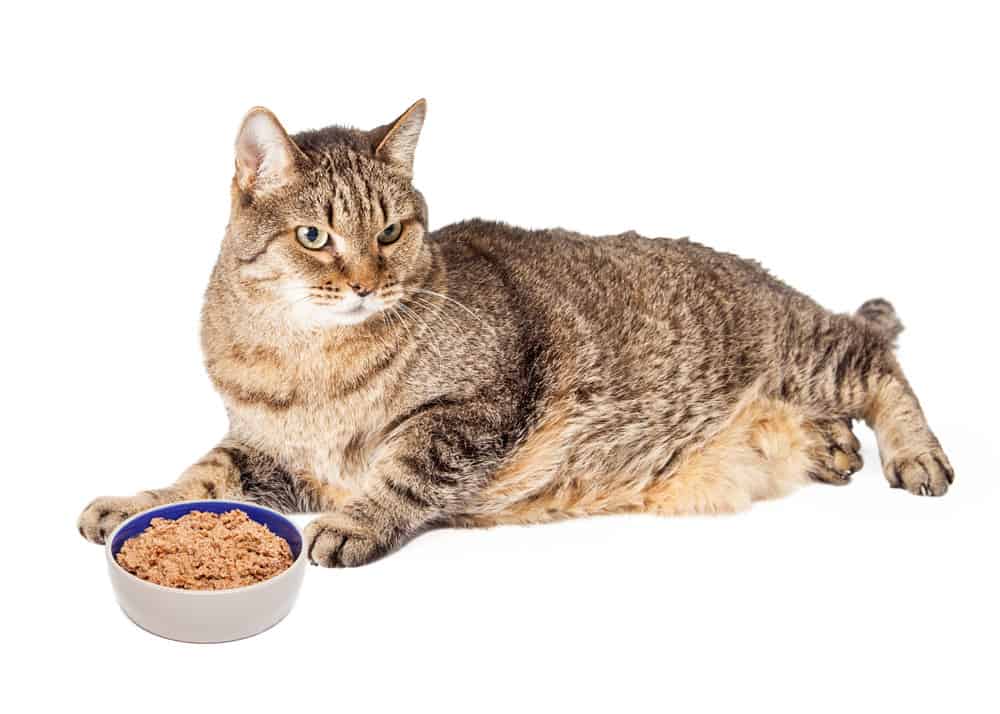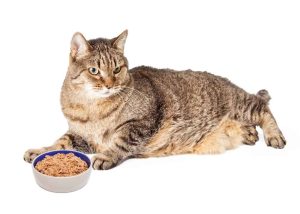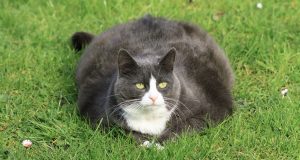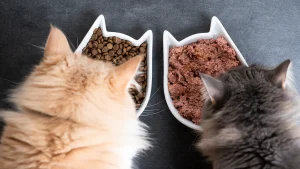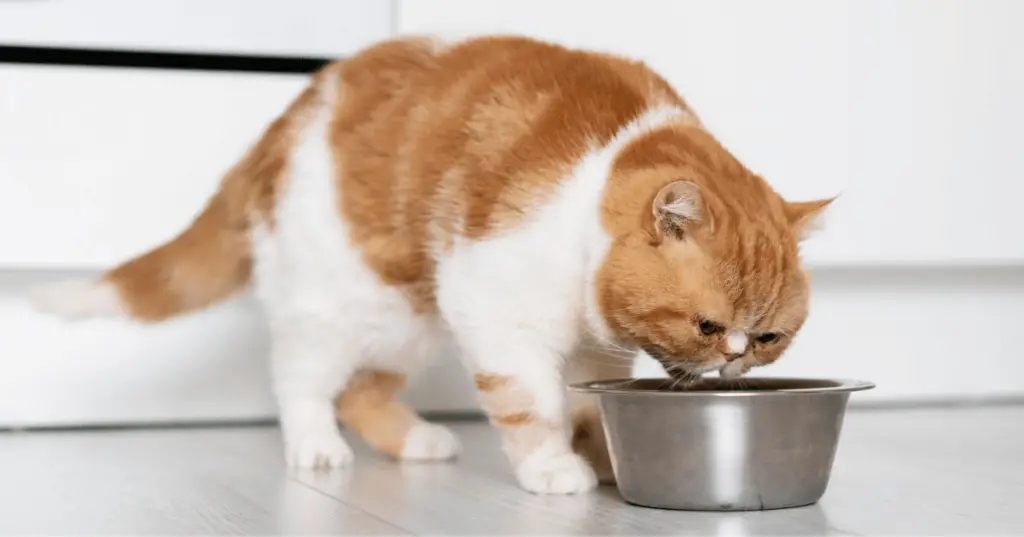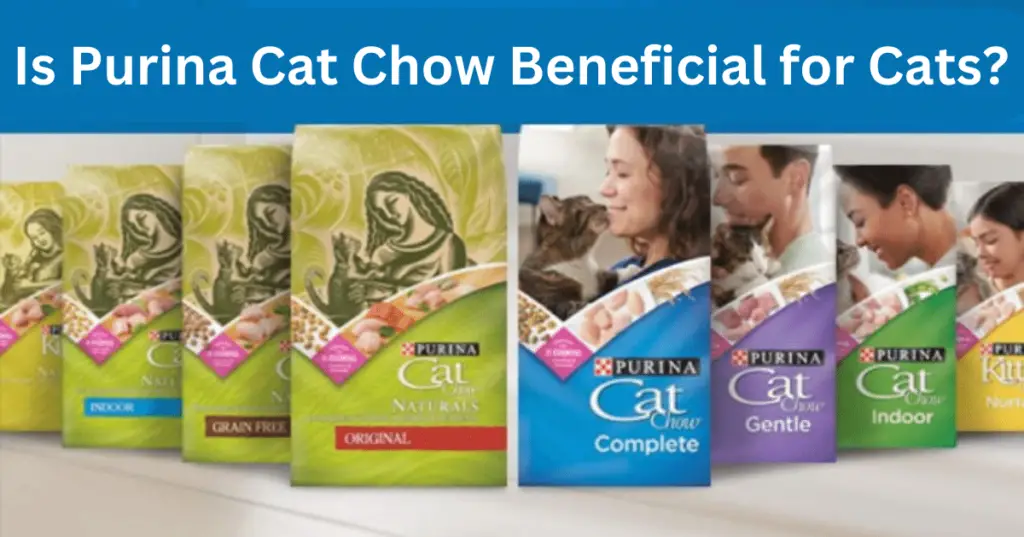Fat Cats Food
Feline nutrition plays a pivotal role in the health and vitality of cats. Among the specialized dietary considerations for cats, “Fat Cats Food” stands out as a critical component in addressing weight-related concerns among our feline companions. This comprehensive guide aims to explore the multifaceted nature of Fat Cats Food, encompassing its role in weight management, nutritional composition, selection criteria, health benefits, and practical strategies for aiding overweight or obese cats towards a healthier lifestyle.
Understanding Feline Obesity
Obesity remains a prevalent health issue in domestic cats, with a significant impact on their overall well-being. The prevalence of feline obesity is attributed to various factors, including overeating, sedentary lifestyles, improper diet, underlying health conditions, and genetic predispositions. Recognizing the signs of obesity, such as a rounded appearance, difficulty grooming, or reduced activity levels, prompts the need for intervention through specialized diets like Fat Cats Food.
Exploring the Components of Fat Cats Food
Fat Cats Food is tailored to support weight management in overweight or obese cats by focusing on specific nutritional components:
- Balanced Nutritional Profile: These specialized diets emphasize a balanced nutrient profile, providing controlled portions of proteins, fats, and carbohydrates.
- High Protein, Low Carbohydrate Formula: Increased protein content aids in maintaining muscle mass while minimizing carbohydrates and assists in weight control.
- Fiber-Rich Ingredients: The inclusion of fiber supports digestive health, creates a feeling of fullness and regulates blood sugar levels.
- Healthy Fats and Essential Nutrients: Incorporating essential fatty acids, such as Omega-3 and Omega-6, promotes skin health, a glossy coat, and overall well-being.
- Controlled Caloric Content:Fat Cats Food is meticulously formulated to maintain a controlled caloric intake while ensuring satiety. These diets often employ precise calorie calculations, allowing cats to feel full without excessive caloric intake facilitating weight loss efforts.
- Specialized Formulation for Satiety:Fat Cats Food often includes specific ingredients or additives that promote a feeling of fullness or satiety in cats. These may consist of soluble fibers like psyllium or certain protein sources that aid in curbing hunger and discouraging overeating behaviors.
- Digestibility and Nutrient Absorption:Optimal digestion and nutrient absorption are vital in Fat Cats Food. Specialized diets incorporate easily digestible ingredients that maximize nutrient utilization, ensuring that cats obtain essential nutrients even with controlled portions.
Choosing the Right Fat Cats Food: Factors to Consider
When selecting a suitable Fat Cats Food, several considerations come into play:
- Consultation with a Veterinarian: Consulting a veterinarian is crucial for devising an effective weight loss plan and selecting an appropriate specialized diet based on the cat’s specific health needs.
- Quality and Trusted Brands: Opting for high-quality, vet-recommended brands ensures the provision of essential nutrients and controlled calorie intake necessary for weight management.
- Caloric Content and Portion Control: Understanding the caloric density per serving and practicing precise portion control are fundamental in aiding weight loss efforts.
- Customized Formulation for Specific Health Conditions:Some cats with weight issues might have concurrent health conditions, such as diabetes or urinary tract problems. Specialized Fat Cats Food options may cater to these specific health needs by offering formulations that align with these conditions. For instance, diabetic-focused diets might have controlled carbohydrate content to regulate blood sugar levels, while urinary health diets might include ingredients to support urinary tract health.
- Ingredient Transparency and Quality:Opting for Fat Cats Food brands that prioritize ingredient transparency and quality is crucial. Trustworthy brands openly disclose their ingredient sourcing, highlighting high-quality, responsibly sourced ingredients free from artificial additives, preservatives, or fillers. This transparency ensures pet owners are aware of what they are feeding their cats.
Strategies for Effective Weight Management in Cats
Weight management in cats extends beyond specialized diets. Integrating effective strategies is essential:
- Promoting Exercise and Activity: Encouraging physical activity through interactive toys, climbing structures, and regular playtime stimulates weight loss and supports overall fitness.
- Structured Feeding Schedule: Establishing a consistent feeding schedule and accurately measuring portions helps prevent overeating and aids in weight control.
- Regular Monitoring and Veterinary Support: Regularly monitoring the cat’s weight health status and scheduling periodic vet visits allow for tracking progress and making necessary adjustments to the weight loss plan.
- Environmental Enrichment and Activity Encouragement: Besides providing toys and interactive games, creating an enriching environment encourages cats to stay active. Incorporating climbing structures, cat trees, or puzzle feeders promotes movement and mental stimulation, aiding weight loss efforts while preventing boredom-related overeating.
- Meal Pacing and Controlled Feeding Techniques:Implementing meal pacing techniques helps control eating speed, preventing rapid consumption. Utilizing slow-feed bowls or food puzzles slows down eating, allowing cats to feel fuller on smaller portions. Similarly, scheduled and controlled feeding times prevent continuous grazing, aiding in portion control.
Transitioning to Fat Cats Food: Ensuring a Smooth Shift
Gradually transitioning a cat from its current diet to Fat Cats Food is crucial to prevent digestive issues. A gradual shift over 7-10 days encourages acceptance and minimizes gastrointestinal disturbances, ensuring a smooth transition to the new diet.
Health Benefits of Fat Cats Food
The specialized nutritional composition of Fat Cats Food offers numerous health advantages:
- Weight Reduction: Controlled calorie intake aids in gradual weight loss, preventing further weight gain.
- Improved Overall Health: Proper nutrition supports better digestion, enhances energy levels, and reduces the risk of obesity-related health issues.
- Enhanced Vitality and Well-Being: A balanced diet contributes to increased energy, better mobility, and an overall improvement in the cat’s well-being.
- Joint Health and Mobility Improvement:Weight reduction through specialized diets like Fat Cats Food alleviates pressure on joints, reducing strain and discomfort.
- Regulation of Blood Sugar Levels:Controlling caloric intake and managing weight aids in regulating blood sugar levels in overweight or obese cats.
Conclusion
Fat Cats Food serves as a valuable tool in addressing weight-related concerns among felines. By combining specialized diets with exercise, portion control, and regular veterinary consultations, cat owners can play a proactive role in managing their pet’s weight and promoting a healthier lifestyle. Understanding the significance of Fat Cats Food and implementing effective weight management strategies contributes to the overall health and longevity of our beloved feline companions.

